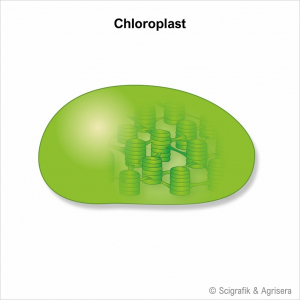1

Set of 10 plant anti-Lhca and anti-Lhcb antibodies
This discounted antibody set contains ten well published antibodies with reactivity to LHC proteins for a wide range of plant species - di and monocots.
- Data sheet
-
This set contains the following antibodies:
AS01 005, Anti-Lhca1 (0.5 mg)
AS01 006, Anti-Lhca2 (0.5 mg)
AS01 007, Anti-Lhca3 (0.5 mg)
AS01 008, Anti-Lhca4 (0.5 mg)
AS09 522, Anti-Lhcb (50 µg)
AS01 003, Anti-Lhcb2 (50 µg)
AS01 002, Anti-Lhcb3 (50 µg)
AS04 045, Anti-Lhcb4 (0.5 mg)
AS01 009, Anti-Lhcb5 (50 µl)
AS01 010, Anti-Lhcb6 (50 µl)
- Product Info
-
Immunogen: BSA or KLH-conjugated synthetic peptides derived from conserved regions of plant Lhca1-4 and Lhcb1-6 protein sequences. Host: Rabbit Clonality: Polyclonal Purity: Total IgG. Protein G purified in PBS pH 7.4.: AS01 005, AS01 006, AS01 007, AS01 008, AS01 002, AS04 045 affinity purified serum: AS01 004, AS01 003. Serum: AS01 009, AS01 010. Format: Lyophilized Quantity: 0.5 mg: AS01 005, AS01 006, AS01 007, AS01 008, AS01 002, AS04 045
50 µg: AS01 003
50 µl: AS01 009, AS01 010
100 µg: AS09 522Reconstitution: For reconstitution add sterile water according to label on each tube Storage: Store lyophilized/reconstituted at -20°C; once reconstituted make aliquots to avoid repeated freeze-thaw cycles. Please remember to spin the tubes briefly prior to opening them to avoid any losses that might occur from material adhering to the cap or sides of the tube. Tested applications: Western Blot (WB) Recommended dilution: This set contains the following antibodies:
Product number:
Product name:
AS01 005
AS01 006
AS01 007
AS01 008
AS09 522
AS01 003
AS01 002
AS04 045
AS01 009
AS01 010Anti-Lhca1
Anti-Lhca2
Anti-Lhca3
Anti-Lhca4
Anti-Lhcb
Anti-Lhcb2
Anti-Lhcb3
Anti-Lhcb4
Anti-Lhcb5
Anti-Lhcb6
Product AS01 009 and AS01 010 can be sold containing ProClin if requested.Expected | apparent MW: 20 - 29 kDa - Reactivity
-
Confirmed reactivity: Arabidopsis thaliana, Hordeum vulgare, Picea abies, Picea glauca, Pinus strobus, Spinacia oleracea, Drosera capensis. These antibodies have been shown to be reactive in all dicots, monocots, and gymnosperms Not reactive in: No confirmed exceptions from predicted reactivity are currently known - Additional Information
-
Additional information (application): For detection of algal LHC proteins, we recommend: Set of 4 Chlamydomonas anti-Lhc antibodies - Product Citations
-
Selected references: Merry et al. (2017). A comparison of pine and spruce in recovery from winter stress; changes in recovery kinetics, and the abundance and phosphorylation status of photosynthetic proteins during winter. Tree Physiol. 2017 Sep 1;37(9):1239-1250. doi: 10.1093/treephys/tpx065.
Li et al. (2017). NYEs/SGRs-mediated chlorophyll degradation is critical for detoxification during seed maturation in Arabidopsis. Plant J. 2017 Nov;92(4):650-661. doi: 10.1111/tpj.13710. Epub 2017 Oct 20.
Yoshida et al. (2016). Hisabori T1.Two distinct redox cascades cooperatively regulate chloroplast functions and sustain plant viability. Proc Natl Acad Sci U S A. 2016 Jul 5;113(27):E3967-76. doi: 10.1073/pnas.1604101113. Epub 2016 Jun 22.
Pavlovič et al. (2016). A carnivorous sundew plant prefers protein over chitin as a source of nitrogen from its traps. Plant Physiol Biochem. 2016 Mar 5;104:11-16. doi: 10.1016/j.plaphy.2016.03.008
Xu et al. (2011). Light-harvesting chlorophyll a/b-binding proteins are required for stomatal response to abscisic acid in Arabidopsis. J. Ex. Bot. Dec 5 (ahead of print).
Kang et al. (2010). Evaluation of light-harvesting complex proteins as senescence-related protein markers in detached rice leaves. Photosynthetica 47, 4:638-640.
